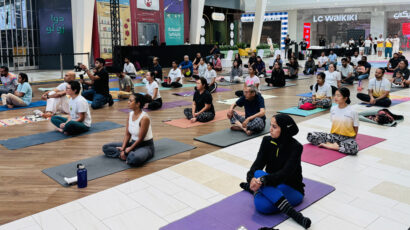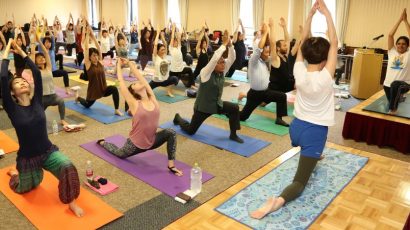Components of Yoga

With its holistic and health enhancing effects, Yoga is now hailed as a healthy way of life wherein one attains the perfect equilibrium between Body and mind. Yoga is often graded down just to an exercise and many are not aware of the fact that yoga is an all-enhancing component in the lives of those who practice it. Yoga has eight components that turns even the mere act of existence provides the experience of bliss. Proposed by Patanjali, the following are the eight components of yoga that elevates one from a state of existence to a state of pure bliss.
Yama
Yama, the first component, in itself contains five factors which includes Ahimsa or non-violence (which dictates that no living creature should be harmed), Sathya or truthfulness (which dictates that one should not lie), Asteya or Non-stealing (which emphasizes that one shouldn’t even desire for something that belongs to someone else), Brahmacharya or chastity (wherein it is mandatory that the behavior of the individual is conducive for reaching the highest goal of spiritual sadhana) and Aparigraha (which refrains one from collecting what is not required.)
Niyama
The second component is Niyama and this includes virtuous habits, behaviors and observances which keeps the body and mind clear. Niyama includes Sauca (or cleanliness), Santtoa (or contentment and acceptance), Tapas (persistence or austerity), Svadhyaya (study of the self and the scriptures) and Iswarapranidhana (which is the contemplation of the divine.
Asana
The third component is asana which refers to postures that one can hold on for a period of time. There is no specific asana prescribed by Patanjali. Rather he describes it as those postures one can hold on being comfortable and motionless. The asanas that we find today in Yoga were in fact later developed and they are not found in the text by Patanjali.
Pranayama
Pranayama is the fourth component of yoga which includes breathing practices where in breath I taken in slowly, left out completely and also controlled (in terms of holding it in the lungs and also by refraining from taking breath for a small period of time).
Prathyahara
Prathyahara is the process wherein one shifts the source of pleasure from sensory experiences to self-realization or awareness.
Dharana
The sixth component Dharana implies concentration and the control of awareness and introspection.
Dhayana and Samadhi
The seventh and eight components of yoga are respectively Dhayana and Samadhi. Dhyana refers to contemplation or mediation which is unstrained and uninterrupted. Samadhi can in fact be seen as the last point of Yoga wherein one becomes one with the subject of contemplation and there is no more of a separation of I and You. Mind in this stage is so absorbed in meditation and even loses the sense of identity. The only thing that remains is oneness.















